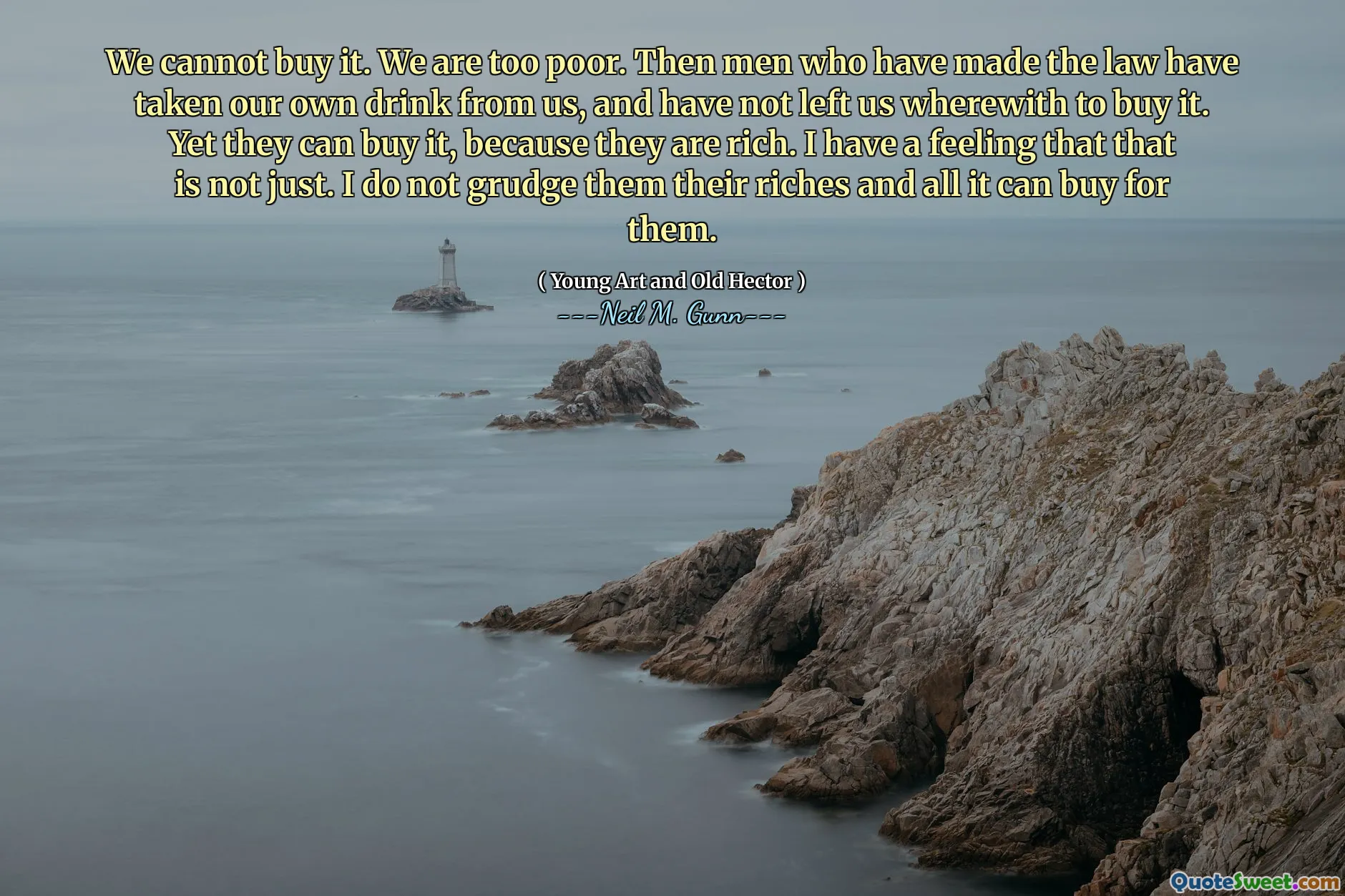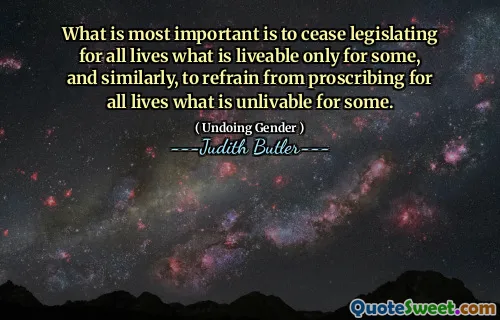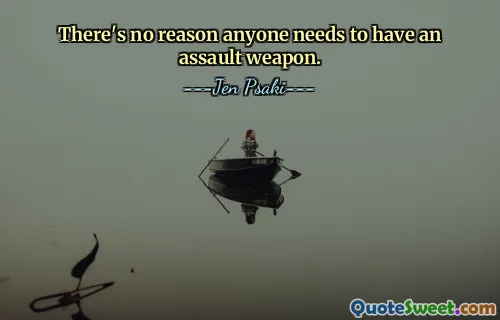
We cannot buy it. We are too poor. Then men who have made the law have taken our own drink from us, and have not left us wherewith to buy it. Yet they can buy it, because they are rich. I have a feeling that that is not just. I do not grudge them their riches and all it can buy for them.
This quote vividly captures the stark disparity between the privileged and the impoverished within a society. It highlights a situation where those in power, who have created laws to regulate and control access to essential commodities like drink (likely alcohol), have deliberately or indirectly made it inaccessible to the poor. The speaker’s acknowledgment that the wealthy can afford to buy what they are denied underscores the systemic injustices perpetuated by societal hierarchies. The sentiment expressed reveals a moral discomfort with the inequality, emphasizing a sense of unfairness. It suggests that although the wealthy are entitled to their riches, the mechanisms of power and legislation are skewed, favoring the rich while disenfranchising the poor. This serves as a reflection on social morality and justice, questioning the legitimacy of laws that deepen inequality. The quote also resonates with broader themes of social welfare, human dignity, and the moral responsibility of society to ensure fairness for all its members. It provokes us to think critically about the ethical implications of economic and legislative policies, and the human cost when privilege is maintained at the expense of the vulnerable. Such reflections are even more relevant today, as ongoing debates about social inequality, access to resources, and the fairness of laws continue to shape our world. Ultimately, this quote illuminates the persistent tension between social justice and systemic privilege, urging us to consider the moral foundations of our societal structures.



